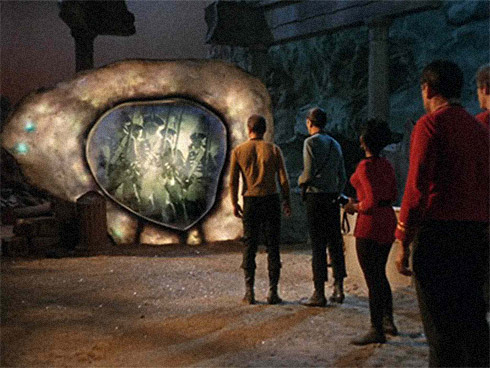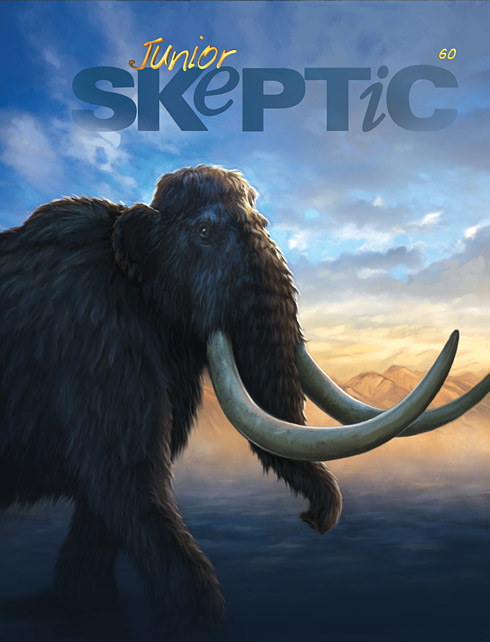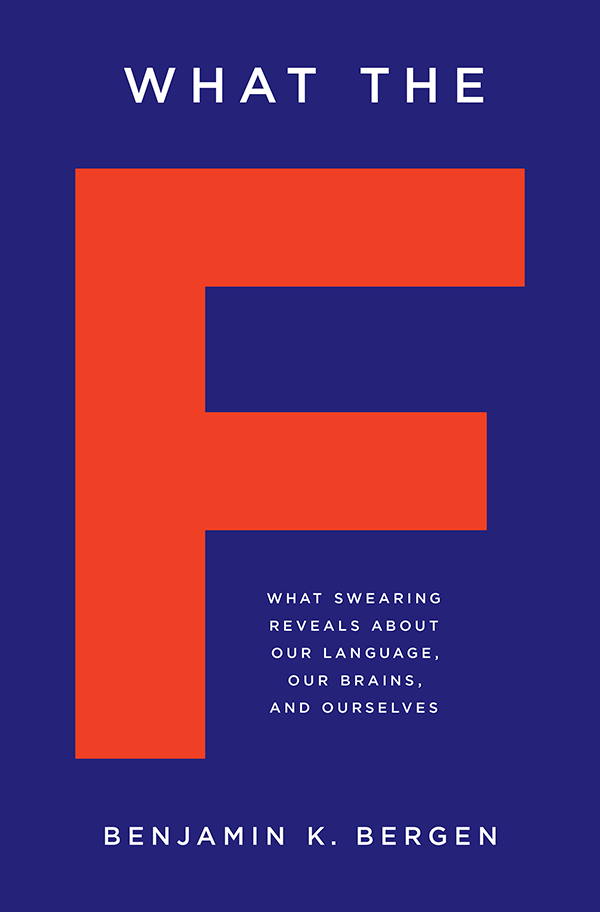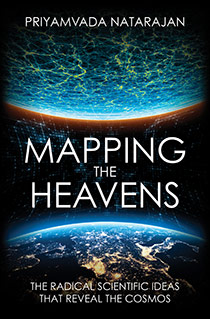In this week’s eSkeptic:
SKEPTIC MAGAZINE 21.3
Is Internet Pornography Bad For You?
Does watching Internet porn cause sexual dysfunction? Can it rewire your brain? Has it undermined our ability to relate to real sex? The latest issue of Skeptic magazine (21.3), INTERNET PORN, examines these questions and more. This issue also covers: the hazards of herbal medicine; tales of the discovery of an Ancient Mayan city on Google Earth; sexual orientation defined; the paleo diet; the science of substance abuse treatment; terror attacks that never were; electromagnetic field panics; mammoth mysteries; and more!
Get the digital edition instantly from PocketMags.com, or via the Skeptic Magazine App for iOS, Android, Windows Phone, Kindle Fire HD, Mac, and PC. You can also pre-order the print edition from Shop Skeptic. The print edition won’t likely hit newsstands for another week or two.
30-DAY FREE TRIAL
on digital subscriptions
Subscribe to Skeptic magazine on PocketMags.com or via the Skeptic Magazine App on your favourite iOS or Android device (or via PocketMags.com on your PC or Mac) and try the latest issue free for 30 days! Here’s a sneak peak at this issue for iPad…
JUNIOR SKEPTIC
Mammoth Mysteries, Part One (issue 60)
Physically bound inside each and every issue of Skeptic magazine is Junior Skeptic: an engagingly illustrated science and critical thinking publication for younger readers (and the young at heart).
In the pages of Junior Skeptic, we often look at “wild and wooly” mysteries—but today we mean that literally. In this issue we’ll explore the hidden history of mammoths and mastodons! The elephant family tree has had many oddly shaped branches. There once existed elephants with four tusks or even tusks shaped like shovels. But fossils of mammoths and mastodons weren’t just surprising—they changed science forever! Indeed, the discovery of these great shaggy prehistoric beasts overturned our understanding of the entire world. How did that happen? Let’s find out!

About Science Salon
In the tradition of the Enlightenment salons that helped drive the Age of Reason and the public interest in science, the Skeptics Society is pleased to announce the next two intimate Science Salons featuring an “in conversation” between Dr. Michael Shermer and professor of cognitive science, Dr. Benjamin Bergen (October 16) and cosmologist and theoretical astrophysicist, Dr. Priyamvada Natarajan (November 13). Dr. Shermer will discuss the guest’s latest science book or research project in a dialogue format, followed by an intimate conversation with the audience that allows more interaction with the guest than a formal Q&A.
IMPORTANT TICKET INFORMATION: Advance tickets are required. Tickets will not be sold at the door. Purchase by calling the Skeptics Society office at 1-626-794-3119. Seating is limited. $50 per individual (includes a reserved seat, autographed copy of the guest’s book, hors d’oeuvres and wine).
WHAT THE F
What Swearing Reveals About Our Language, Our Brains, and Ourselves
Dr. Benjamin Bergen is a professor of cognitive science at the University of California, San Diego, and in his new book he explains why profanity is so appealing to us. Let’s face it, we all swear. Whether we’re happy or mad, uttering a four-letter word seems to be a natural occurrence for most of us. But why do we swear, even when we know we’re breaking cultural taboos? Why are some words off limits in certain countries or deemed offensive in past centuries but are considered perfectly tame in others? What does all this g*ddamn swearing tell us about our language and our brains? Bergen has the answers as he illuminates the controversial and complex nature of profanity and its relationship on our culture.
Order What the F: What Swearing Reveals About Our Language, Our Brains, and Ourselves from Amazon.
Call 1-626-794-3119 now to reserve.
MAPPING THE HEAVENS
The Radical Scientific Ideas That Reveal The Cosmos
Dr. Priyamvada Natarajan is a cosmologist and theoretical astrophysicist from Yale University, specializing in dark matter, dark energy, and black holes. She also holds the Sophie and Tycho Brahe Professorship of the Dark Cosmology Centre, Niels Bohr Institute, at the University of Copenhagen, Denmark. She is passionate about sharing science with the general public and in her new book she provides a tour of the “greatest hits” of cosmological discoveries—the ideas that reshaped our universe over the past century. The cosmos, once understood as a stagnant place, filled with the ordinary, is now a universe that is expanding at an accelerating pace, propelled by dark energy and structured by dark matter. Priyamvada Natarajan is at the forefront of this research—an astrophysicist who literally creates maps of invisible matter in the universe. In the book, she not only explains for a wide audience the science behind these essential ideas but also provides an understanding of how radical scientific theories gain acceptance. The formation and growth of black holes, dark matter halos, the accelerating expansion of the universe, the echo of the big bang, the discovery of exoplanets, and the possibility of other universes—these are some of the puzzling cosmological topics of the early twenty-first century. Natarajan discusses why the acceptance of new ideas about the universe and our place in it has never been linear and always contested even within the scientific community. And she affirms that, shifting and incomplete as science always must be, it offers the best path we have toward making sense of our wondrous, mysterious universe.
Order Mapping the Heavens: The Radical Scientific Ideas That Reveal The Cosmos from Amazon.
Call 1-626-794-3119 now to reserve.

Gene Roddenberry
50th Anniversary Tribute
Star Trek was launched on September 8, 1966, 50 years ago tomorrow, which also happens to be Michael Shermer’s birthday, so he remembers it well—hooked on the show and the concept and all that it stood for from the beginning. Shermer penned this essay in 1994 upon the publication of his friend David Alexander’s biography: Star Trek Creator: The Authorized Biography of Gene Roddenberry. David was a humanist and skeptic and deeply involved in both movements when Roddenberry chose him as his biographer. As such, David was granted access to Roddenberry’s private archives, and he treated his charge with respect, even while revealing the man’s very human flaws. Shermer used the occasion to consider the role of the individual—the hero even—in history, and how one person really can make a difference, which surely Gene Roddenberry did.
A version of this tribute article was originally published in Skeptic magazine 3.1 in 1994, under the title “The Thinker on the Edge of Forever,” and republished in Shermer’s 2005 book Science Friction, a collection of articles and essays from the previous decade. Read Michael Shermer’s bio at the end of this article.
The Hero on the Edge of Forever Gene Roddenberry, Star Trek, and the Heroic in History
by Michael Shermer
Historians and biographers have explained the origin of the heroic in two dramatically different ways. At one end of the spectrum heroes are “great men”—seminal thinkers, brilliant inventors, creative authors. At the other end heroes are historical artifacts of their culture—ordinary people thrust into positions of power and fame that might just as well have gone to others. The first archetype is represented by Thomas Carlyle in his Heroes, Hero-Worship, and the Heroic in History: “Universal History, the history of what man has accomplished in this world, is at bottom the history of the great men who have worked here. Worship of a hero is transcendent admiration of a great man.” The second archetype is seen in such Marxist writers as Friedrich Engels: “That a certain particular man, and no other, emerges at a definite time in a given country is naturally a pure chance, but even if we eliminate him there is always a need for a substitute, and the substitute…is sure to be found.”

Script poster
Although such polarities are held by relatively few, the central claims of both contain an element of truth. History’s heroes may be great individuals, but all individuals, great or not are—indeed must be—culturally bound; where else could they act out the drama of their heroics?
In this sense, history and biography may be modeled as a massively contingent multitude of linkages across space and time, where the hero is molded into, and helps to mold the shape of, those contingencies. For Sidney Hook, in his classic study of The Hero in History, a hero is “the individual to whom we can justifiably attribute preponderant influence in determining an issue or event whose consequences would have been profoundly different if he had not acted as he did.” History is not strictly determined by the forces of the weather or geography, demographic trends or economic shifts, class struggles or military alliances. The hero has a role in this historical model of interacting forces—between unplanned contingencies and forceful necessities.
Roddenberry was a humanist in the purist sense of the word—he had a deep love of humanity and held out the greatest hope for our future, without depending on a higher power to achieve happiness.
Contingencies are the sometimes small, apparently insignificant, and usually unexpected events of life—for want of a horseshoe nail the kingdom was lost. Necessities are the large and powerful laws of nature, forces of economics, trends of history—for want of 100,000 horseshoe nails the kingdom was lost. Elsewhere I have presented a formal model describing the interaction of these historical variables, summarized in these brief definitions: Contingency is taken to mean a conjuncture of events occurring without perceptible design; Necessity is constraining circumstances compelling a certain course of action. Leaving either contingencies or necessities out of the biographical formula, however, is misleading. History is composed of both, therefore it is useful to combine the two into one term that expresses this interrelationship—contingent-necessity—taken to mean: a conjuncture of events compelling a certain course of action by constraining prior conditions.

The crew of the USS Enterprise encounter the Guardian of Forever. Film still from the episode: “The City on the Edge of Forever,” first broadcast on April 6, 1967. (Credit: CBS)
Contingent-necessity is actually an old concept in new clothing. The Roman historian Tacitus was uncertain “whether it is fate and unchangeable necessity or chance which governs the revolutions of human affairs,” where we have “the capacity of choosing our life,” but “the choice once made, there is a fixed sequence of events.” Karl Marx offered this brilliantly succinct one-liner (from The Eighteenth Brumaire): “Men make their own history, but they do not make it just as they please; they do not make it under circumstances chosen by themselves, but under circumstances directly found, given and transmitted from the past.”
A question arises from this: Can we find a repeatable pattern in historical sequences that demonstrates when and where contingencies and necessities will dominate in the life of an individual? Contingency and necessity vary in both influence and sequential position within any given historical sequence according to what is called the model of contingent-necessity, which states: In the development of any historical sequence the role of contingencies in the construction of necessities is accentuated in the early stages and attenuated in the later. […]

HELP SUPPORT OUR EFFORTS
Donate via PayPal and eBay
Did you know that you can support the work of the Skeptics Society by donating to us via PayPal or eBay? You can make a donation to the Skeptics Society via the PayPal Giving Fund, or favourite us on eBay Giving Works, and specify the percentage of your eBay sales that you’d like to donate to us. Your donations directly support the work of your Skeptics Society.




















